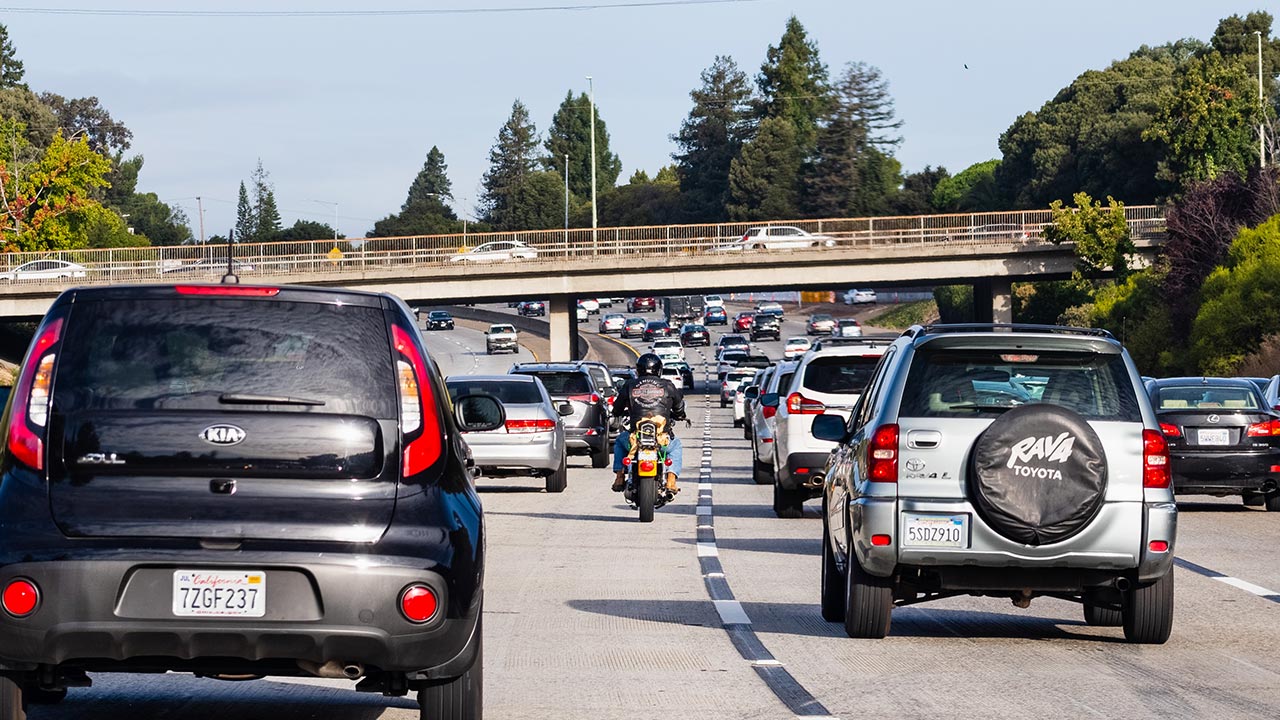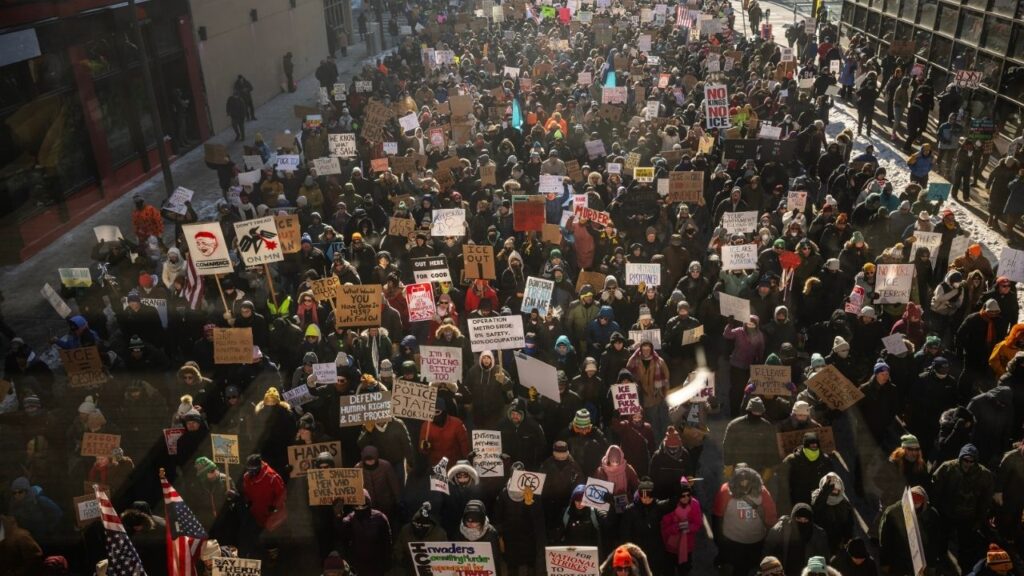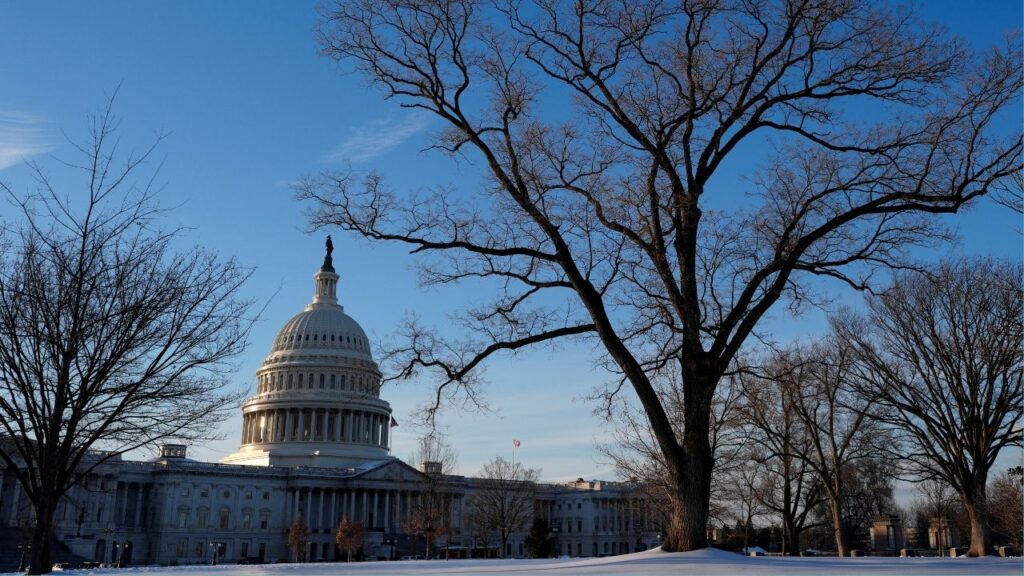As of 2020, California had the fourth-worst roadway conditions of any state with just 67% of its 26,406 miles of pavement in “acceptable” condition. (Shutterstock)

- California’s average price for regular-grade gas again is topping $5 a gallon
- Most of the reasons for price differences between California and other states can be attributed to differing policies.
- Penalties for excessive oil company profits are relatively toothless.
Share
|
Getting your Trinity Audio player ready...
|
To state the obvious, California motorists are experiencing one of the state’s periodic spikes in gasoline prices.

Dan Walters
CalMatters
Opinion
California’s average price for regular-grade gas has again topped $5 a gallon, according to the most recent American Automobile Association report. It’s more than $6 in some areas. The average is up about 20 cents from a year ago and is about $1.50 higher than the national figure.
I can attest to the differential, having spent part of March driving some 3,000 miles through four western states, mostly to visit national parks, and buying about 200 gallons of fuel along the way. All of my fill-ups were under $3.50 a gallon, with the lowest price being $2.99 in Wyoming.
The difference between California prices and those in other states raises, for the umpteenth time, is the question of why it exists.
A couple of years ago, Gov. Gavin Newsom spent months vilifying oil companies as price-gouging enemies of the people and demanded that the Legislature punish them with taxes on excess profits. He couldn’t win approval of the tax proposal, switched to seeking civil penalties, and ultimately had to settle for relatively toothless legislation directing the state Energy Commission to gather data, establish a reasonable profit level, and assess penalties for exceeding it.
“Finally, we’re in a position to look our constituents in the eye and say we now have a better understanding of why you’re being taken advantage of,” Newsom said a year ago as he signed the bill. “There’s a new sheriff in town in California, where we brought Big Oil to their knees. And I’m proud of this state.”
We have heard virtually nothing from officialdom about gas prices since, and Newsom apparently didn’t bring Big Oil to its knees.
California Policies and Taxes Inflate Gas Prices
The vast majority of the differential in gas prices between California and other states can be attributed to differing policies.
Severin Borenstein, a UC Berkeley economist regarded as the state’s leading expert on the issue, parsed the differential in a 2023 paper, pointing out that California’s direct and indirect taxes on fuel amount to nearly $1 per gallon – 70 cents higher than the national average in such taxes – and the state’s unique fuel blend to battle smog adds another dime.
That left what he calls the “mystery gasoline surcharge,” or MGS, of about 43 cents a gallon that cannot be directly attributed to oil prices or California’s taxes and other official factors. It may be a mystery, but at least some of it can be logically attributed to the relatively high costs of doing any kind of business in California – rents, electricity and other utilities, wages and regulatory overhead, for example.
Even if the MGS could be eliminated from the equation, California’s gas prices would still be at least $1 higher than those in other states.
California’s Terrible Roads
This month’s sojourn through other western states underscored another aspect of the gas-price conundrum. Despite paying direct and indirect taxes on fuel that are three times the national average, California’s motorists are driving on highways that are subpar vis-à-vis those in other states.
Driving back into California from other states can be a jarring experience, and data from the federal Bureau of Transportation Statistics back up that observation. As of 2020, California had the fourth-worst roadway conditions of any state with just 67% of its 26,406 miles of pavement in “acceptable” condition.
The national average was 81%, and all four states I visited had much higher scores than California: Wyoming 94.3%, Nevada 85.7%, Utah 80% and Colorado 78.1%.
We are paying the most in gas taxes and getting almost the least in roadway quality.
About the Author
Dan Walters has been a journalist for nearly 60 years, spending all but a few of those years working for California newspapers. He began his professional career in 1960, at age 16, at the Humboldt Times. CalMatters is a public interest journalism venture committed to explaining how California’s state Capitol works and why it matters. For more columns by Dan Walters, go to calmatters.org/commentary.
Make Your Voice Heard
GV Wire encourages vigorous debate from people and organizations on local, state, and national issues. Submit your op-ed to bmcewen@gvwire.com for consideration.


















